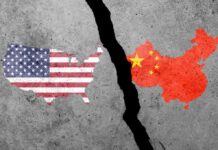
Japan’s economic future hangs in the balance as Prime Minister Shigeru Ishiba prepares to negotiate tariff relief with President Donald Trump.
At a Glance
- Prime Minister Shigeru Ishiba plans to visit the US to discuss tariffs with President Donald Trump.
- Ishiba intends to propose a comprehensive deal to eliminate a planned 24% tariff on Japanese imports.
- Japan hopes to present a “package” of measures to receive tariff relief from the US.
- These tariffs pose a severe threat to Japan’s auto industry, crucial for its economy.
Japan’s Tariff Dilemma
Japanese Prime Minister Shigeru Ishiba intends to visit the United States in a bid to discuss a tariff relief deal with President Donald Trump. The goal is to eliminate tariffs and provide Japanese industries with the opportunity to thrive globally. This move aligns with Japan’s broader economic strategy to dismantle trade barriers and invigorate its domestic markets. High tariffs have placed a heavy burden on several industries, hindering their potential for international expansion and growth.
Ishiba’s plan to propose a wide-ranging deal that includes removing a potentially crippling 24% tariff on Japanese imports is indeed ambitious. He also aims to discuss Japan’s participation in an Alaskan natural gas pipeline project. This initiative is part of a broader strategy to strengthen economic security and diversify trade opportunities amid unpredictably evolving global conditions.
Auto Sector On the Edge
The auto industry holds significant importance in Japan’s economy, employing around 5.6 million people and accounting for 28% of exports bound for the US. The imposition of a 24% tariff, followed by an additional 25% levy specifically on cars entering the US, jeopardizes its stability. The impact is seen in the stock markets as the Nikkei 225 has already plunged by nearly 8%, with investors seeking safer assets.
The Japan Business Federation (Keidanren) has voiced grave concerns about the future of free trade, emphasizing the US’s role in sustaining the post-WWII free trade regime. Masakazu Tokura, Keidanren’s chairman, stressed the importance of maintaining a free trade system amidst rising protectionist tendencies. The economic consequences could be far-reaching and severe for both nations if mutually beneficial solutions are not found.
Negotiations Hang in the Balance
The revelations of these proposed tariffs have spurred diplomatic reactions and concern. Japan is attempting to arrange a phone call between Prime Minister Ishiba and President Trump to preemptively address the consequences of these adverse trade measures. Concessions and a robust, comprehensive package are on Ishiba’s agenda to relieve Japan of the economic strain such tariffs could impose.
Sources:
https://insiderpaper.com/japan-eyes-tariff-relief-with-package-of-measures-pm/






















